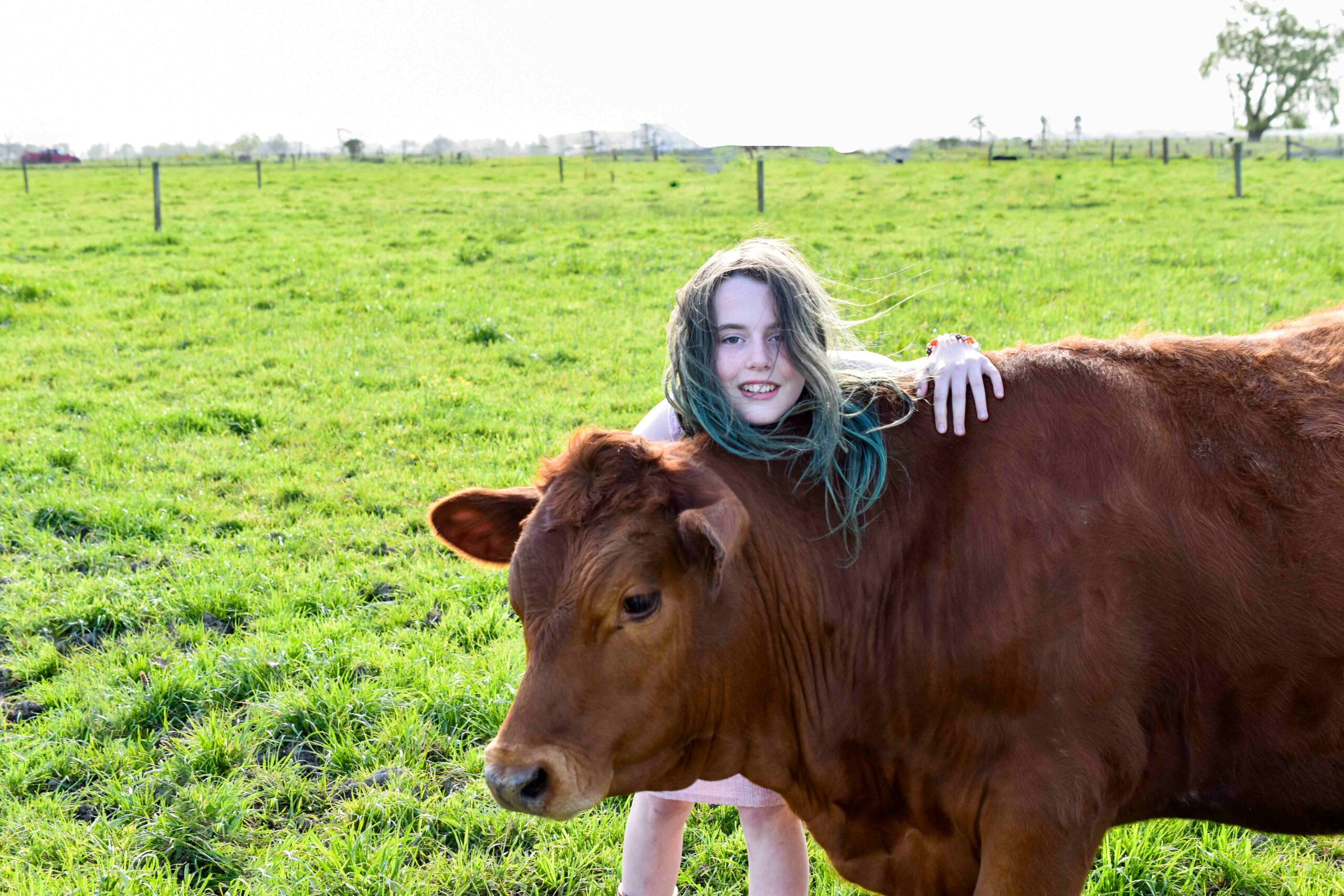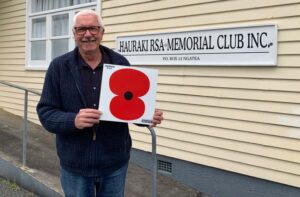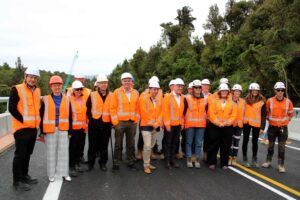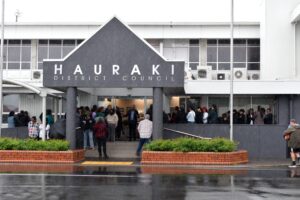Sienna Callis should be a regular 12-year-old girl – attending school, hanging out with mates, and caring for the animals she adores so much. Instead, she spends her days fatigued and in pain.
Sienna has hypermobile Ehlers Danlos Syndrome (hEDS), a connective tissue disorder that affects her whole body. Her ligaments are more lax than they should be, causing a host of secondary issues including compressed veins, pancreatitis, and ongoing chronic pain.
Now she needs a specialist scan, a detailed diagnosis and a plan for her future medical care. The catch – she needs to get to Germany.
“We didn’t want to go so public with sharing her journey, but it’s important to raise awareness for others because she’s certainly not the only one,” Sienna’s mum, Kim Callis, said.
“hEDS is a bit of an invisible illness because people don’t really see all the bad parts of it like we do.”

Sienna’s ordeal began in May of 2022, when she was only 10 years old. An unexplained pain in her leg led to surgery at Waikato Hospital – the first of many extended inpatient stays.
“All her inflammatory markers were raised,” Kim said.
“We were in hospital for 10 days.”
The next two visits, the doctors found pancreatitis, highly unusual in someone Sienna’s age. Then, in January, she was readmitted in excruciating pain.
“I would only compare it to a woman in labour with how her pains were – it came in waves,” Kim said.
“Nothing would get it under control. Ketamine, morphine, fentanyl: you name it, she had it.”
Numerous tests and hospital visits later, the doctors were out of options. Sienna was slapped with a ‘chronic pain’ label and told there was nothing they could do.
“Her pain came down to a six out of 10, but she was constantly tired. She would have these horrific flare-ups that would happen at random and last anywhere between three days and a week,” Kim said.
“We were just at the point where it was really taking its toll on her, on all of us.”
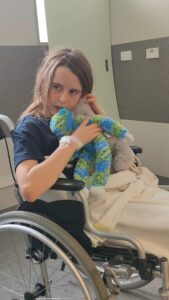
The illness has left Sienna’s family struggling to cope.
“There’s no pattern behind her flare-ups. It’s just really draining – the unpredictability and not being able to plan anything,” Kim said.
“The financial burden has been huge, with the amount of time both Steve and I have had to have off work, and all the travel to and from the hospital and all the specialists and tests … and because we’ve been so focused on Sienna we’ve really deprived her brother, he’s just been left to his own devices.”
Through months of research, Sienna’s family began to suspect she might have hEDS. Kim found a support group and was also approached by New Zealand charity Kiwis Together to share their story.
“This lady who was in Germany with her daughter having compression surgery saw Sienna’s story and reached out to us through Kiwis Together,” Kim said.
“She said it was probably worth actually checking out if she had hEDS and … abdominal vascular compressions.”
Turning to the private health system, Sienna saw a vascular surgeon and a rheumatologist for even more tests.
“She met eight out of nine criteria [for hEDS].”
Sienna’s abdominal scans were sent to German paediatrician and abdominal vascular compression syndrome specialist Dr Scholbach, who diagnosed her with compressed renal and iliac veins, a narrowing of the tube that sends food to the stomach, and several other suspected issues.
“The imaging wasn’t good enough for him to tell exactly what compressions she did or didn’t have,” Kim said.
“He recommended that she [has] a quantitative colour doppler ultrasound … this will help us to obtain an accurate diagnosis.”
Because the technology and specialists aren’t available in New Zealand, Kim said, the diagnosis will require travelling to Germany, something the family hopes to do as quickly as possible.
“The scan is going to cost us about $10,000 plus flights, expenses … it’s not cheap,” Kim said.
“There is a high-cost treatment pool, but it’s really, really hard to get funding … even if we can get funding there, it’s only going to cover the procedure. It’s not going to cover flights, accommodation, food, the time off that we have to have from our jobs.”
They also will need to return to Germany in the coming years for an invasive, high-risk surgery to help manage the condition.
“We’ve got to allow $160- to $180,000 for that, too. It’s $100,000 for the surgery alone, and you’ve got to be there for a month.”
But Sienna doesn’t have a choice.
“We do know that with the development of puberty, more [compressions] can develop, and they can worsen. Typically between the ages of 14 and 16 is where things can get really bad,” Kim said.
“We’re hoping, because it’s a huge, huge surgery, that we can actually hold off as long as we can. [But] the worry for us at the moment is we don’t know the damage that this is all causing to her body, and we’re really worried about the tube that carries food to the stomach because we don’t want her to get to the point where she can’t eat or drink.”
Thankfully, the family isn’t facing this alone.
“We’re really grateful for the support from our village. Netherton School, they’ve been there from day one for us. And all our family and friends, we just couldn’t have gotten to where we are now without them. That support’s huge,” Kim said.
The school has planned a number of fundraisers to help Sienna get to Germany, and the family has also created a Givealittle page and planned a series of raffles thanks to offers from local businesses.
For now though, Sienna is trying to stay focused on the good days.
“Just one day at a time, it’s all we can do,” Kim said.
“For Sienna, her love of school keeps her going … even with what she’s going through, she’s managed to attend 60 per cent of the time. She loves her animals as well.
“[And] she is that girl that is all about helping others, such a deep sense of empathy. When she was in hospital for the second time she saw all the Christmas decorations going up on the ward and she said to me, ‘I know what I want to do with my money that I’ve saved: I want to buy gifts for the kids that will be in here on the ward at Christmas’.”
Kim hopes the family will one day be able to get back to normal life.
“She’s been robbed of so much and so have we. From school camps to concerts … It’s so hard. As a mum, you don’t unsee your child in that sort of pain. We just want her to get back to normal, to being a kid. No child should be made to suffer like this.”
DETAILS: Visit givealittle.co.nz/cause/supporting-siennas-recovery to donate.
By ALICE PARMINTER, Public Interest Journalism funded by NZ on Air

